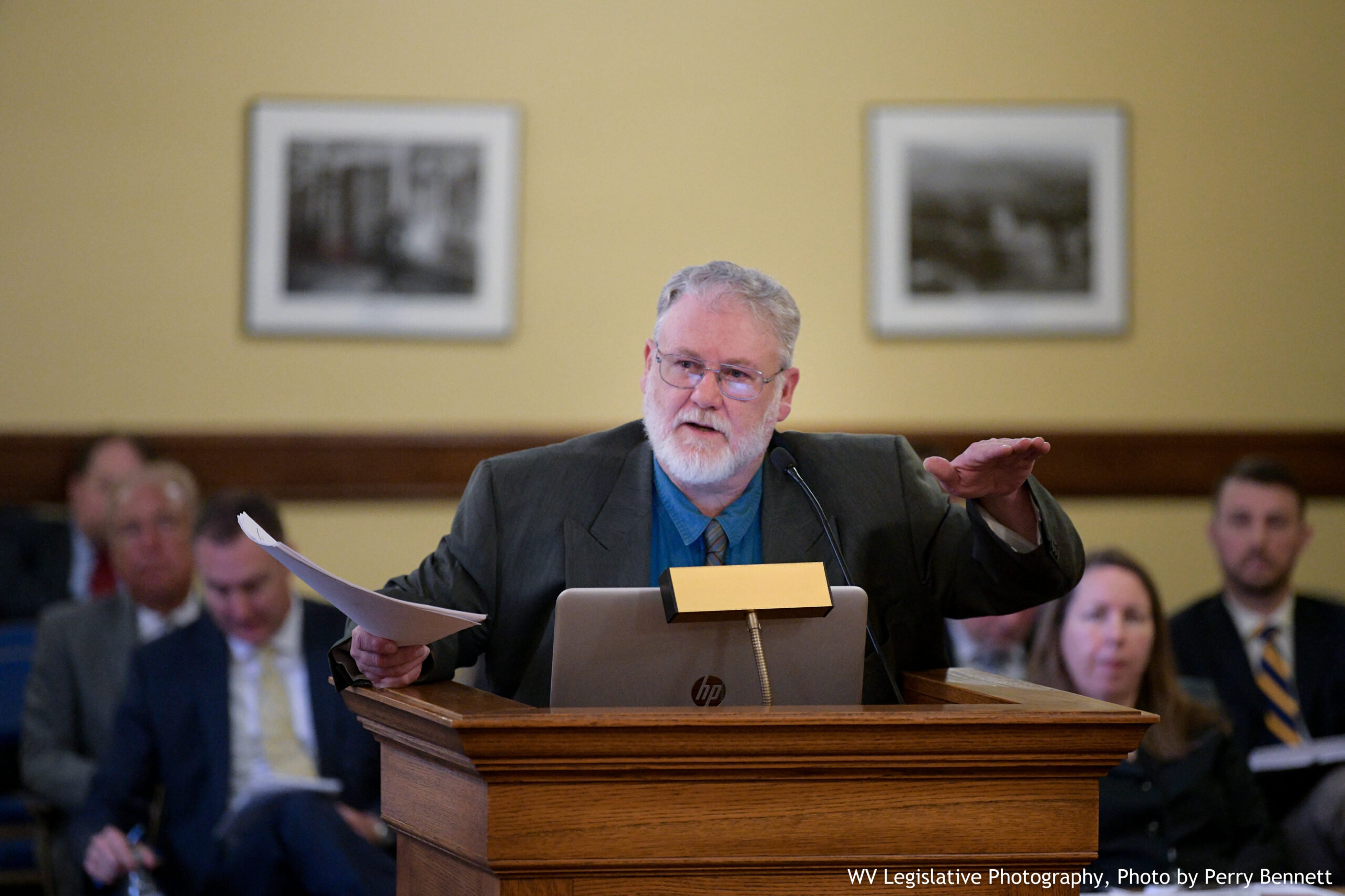CHARLESTON – The Division of Highways updated legislators on Tuesday on its efforts to speed up hiring and keep up with core maintenance.
On the topic of filling vacancies, Highways Commissioner Jimmy Wriston told members of the Transportation Accountability and Infrastructure committees, “We’re a lot better than we have been.”

As reported here numerous times, the red-tape time lag for hiring sent many interested applicants off to other jobs. In 2015, when legislators began tackling the problem, the hiring process required 13 separate approvals and could take up to five months.
Hiring has required a change in culture, Wriston said: moving from always saying no to now trying to determine the best way to fill the need when the local office calls.
New DOH Human Resources Director Julian Woods assumed his post in January. Then, it took eight weeks to get an applicant to work. Through process changes enabled through legislation – such as bypassing some Personnel Division red tape – that fell to six weeks and is now at three to four weeks.
But he wants to cut it to two weeks and is working with the Department of Administration to do that.
Woods said current DOH employment stands at 4,900 but he wants to bring it to 5,100.
Wriston said a big challenge is employing and retaining engineers. As commissioner he earns $94,000. Engineers just out of school can start at $75,000 in the private sector, while mid-level engineers earn $140,000 to $150,000. “I can’t compete with that.”
Sen. Craig Blair, R-Berkeley, who chairs Finance, said the salary cap problems stems from decades of DOH hiring based on the “friends and family” principle. But things are changing and the caps may go. “We’re on the cusp.”
Wriston pointed out that DOH is just one of eight agencies in the Department of Transportation, and there’s no consistency in hiring practices across the department. He’d like to see that changed. Blair and Sen. Mike Romano, D-Harrison, both pledged to tackle that.
Maintenance
Core maintenance is ditching, mowing, patching and a new category called stabilization that’s a sort of hybrid and still not clearly defined, said Jake Baumgartner, Maintenance Division director.
For the current fiscal year, he said, the Legislature allotted a record high $304 million for maintenance and they’ve spent $125 million so far.
“Fix the dang roads” was a daily refrain of the 2019 legislative session and Wriston told members, “We’ve made great strides in the last eight to nine months” and they expect to make more in the next eight to nine.
Baumgartner reviewed the core maintenance plan for the state’s 34,691 road miles.
Ditching is supposed to be done once every three years, he said. This year’s goal is 14,000 miles and they’ve completed 9,000 – about 65% of the goal.
The mowing schedule varies. Expressways are mowed monthly, primary roads three times a year, secondary roads two times, and other roads once a year. All told, the annual mowing goal is 54,000 miles and they’ve completed 33,000 – 66%.
The annual patching goal is 24,000 miles, he said, and they’ve done 14,000 miles – 57%.
Baumartner said one legislative measure to help DOH keep up with maintenance by hiring outdide contractors hasn’t worked, so far.
For example, the low bid on a contract for some ditching in the Mon-Preston area was five times the cost of handling it with DOH crews. And some bids for contract patching were barely less than the cost of new paving.
And for most jobs, they didn’t get the hoped-for bids from small local contractors, he said.
“It didn’t turn out quite as well as we hoped,” he said. They’re looking to work bugs out of the process to get better prices.
Federal funds problem
Wriston also told legislators about a problem the state may face. On July 1, 2020, to trim expenses, the feds are planning to rescind $7.6 billion of unobligated federal FAST Act road money allotted to the states. If it happened, the state would lose about $120 million, he said.
“If that happened here, what would we do? It would be a devastating thing,” he said.
But there’s hope, he said. The House of Representatives has taken up a bill to repeal the rescission and both West Virginia senators – Shelley Moore Capito and Joe Manchin – will support it when it reaches the Senate.
TWITTER @dbeardtdp Email David Beard at dbeard@dominionpost.com




